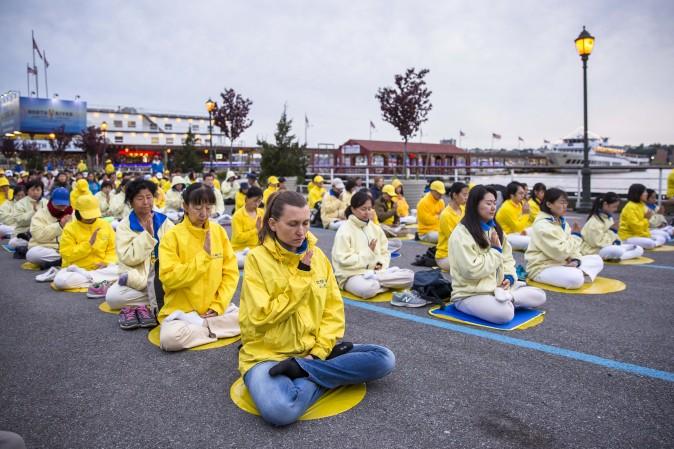NEW YORK—Dressed in bright yellow shirts and jackets, they came in hundreds from around the world on the evenings of May 11 and 12 to stand in neat rows opposite the Chinese Consulate and perform slow-moving exercises, a form of both celebration and protest.
They are practitioners of Falun Gong, also known as Falun Dafa, and they gathered to celebrate the date 25 years ago—on May 13, 1992—that Mr. Li Hongzhi first publicly taught the traditional Chinese spiritual discipline.
They chose to perform their practice’s five meditative exercises across from the Chinese Consulate to call attention to the Chinese regime’s ongoing persecution of the discipline and to reach out to those working in the Consulate.

Hundreds of Falun Gong practitioners hold a vigil near the Chinese Consulate in New York on May 12, 2017. Samira Bouaou/The Epoch Times





